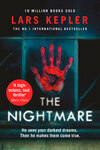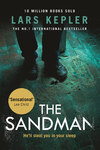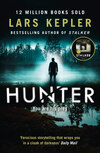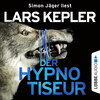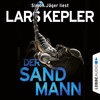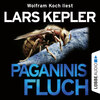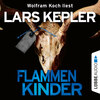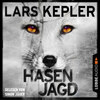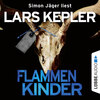Kitabı oku: «The Nightmare», sayfa 6
14
A late-night party
Penelope’s heart is still beating horribly fast – she’s trying to breathe quietly, but the air shudders in her throat. She slides down the rough rocks, pulling the damp moss down with her, and ends up under cover of the branches of the fir tree. She’s so terrified that she’s shaking. She creeps closer to the trunk where the night’s darkness is at its most dense. She hears herself start to whimper when she thinks of Viola. Björn is sitting motionless in the darkness under the branches with his arms wrapped tightly around him, muttering to himself over and over again.
They’ve been running in panic, not looking back, have stumbled and fallen and got back up, they’ve clambered over fallen trees, scraping their legs, knees and hands, but they’ve kept rushing on.
Penelope no longer has any sense of how close their pursuer is, if he’s already caught sight of them again or if he’s given up and decided to wait.
They’ve been running, but Penelope has no idea why. She can’t understand why they’re being hunted.
Maybe it’s all a mistake, she thinks. A terrible mistake.
Her racing pulse starts to slow down.
She feels sick, and almost throws up, but swallows hard instead.
‘Oh, God, oh, God,’ she keeps whispering to herself. ‘This is impossible, we have to get help, someone ought to find the boat soon and start looking for us …’
‘Shhh,’ Björn hisses with fear in his eyes.
Her hands are shaking. A series of rapid-fire images plays in her mind. She tries to blink them away, tries to look at her white trainers, at the brown fir needles on the ground, at Björn’s dirty, bloody knees, but the images keep forcing their way through: Viola is dead, sitting on the bed with her eyes wide open, the look in them unreadable, her face blotchy and white and wet, her hair lank and dripping.
Somehow Penelope had understood that the man standing on the shore beckoning Björn to swim back to land was the person who had killed her sister. She could feel it. She put the few pieces she had together and interpreted the image in an instant. If she hadn’t they would all be dead.
Penelope had screamed at Björn. They were losing time, it was going too slowly, and she hurt him with the end of the boathook before she managed to get him on board.
The black inflatable boat had appeared round the end of Kastskär and picked up speed on the flat, open water.
She had steered straight for an old wooden jetty, then hit reverse and switched the engine off as the hull hit a post. They’d slid sideways with a great creaking sound, then just fled from the boat in panic. They didn’t take anything, not even a phone. Penelope slipped on the rocks and had to cling on with her hands, then turned and saw the man in black quickly tying the inflatable to the jetty.
Penelope and Björn ran into the forest, rushing along side by side, swerving round trees and dark rocks. Björn groaned when his bare feet trod on sharp twigs.
Penelope pulled him along after her, their pursuer wasn’t far behind.
They had no thoughts, no plan, they were just rushing in panic, deep into dense ferns and blueberry bushes.
Penelope heard herself sob as she ran, sobbing in a voice she had never heard herself use before.
A thick branch caught her sharply in the thigh and she had to stop. Her breathing was ragged as she pushed the branch away with trembling hands. Björn was running towards her. Her thigh muscle was throbbing painfully. She started running again, then speeded up. She could hear Björn behind her as she ran deeper and deeper into the dense forest without looking back.
Something happens to your mind when you’re seized by panic. Because the panic isn’t constant – every so often it shatters and is replaced by purely rational reasoning. It’s like switching a horrible noise off and finding yourself surrounded by silence and a sudden overview of the situation. Then the fear comes back again, your thoughts go back to being one-track, chasing round in circles, and all you want to do is run, get away from whoever is chasing you.
Penelope thought plenty of times that they needed to find other people, there must be hundreds of them on Ornö that evening. They needed to find the inhabited parts of the island, further south, they had to get help, get hold of a phone and call the police.
They hid under cover of some fir trees, but after a while the fear became unbearable and they raced on.
As she was running Penelope could feel his presence again, thought she could hear his long, quick steps. She knew he hadn’t stopped running. He’d catch up with them if they didn’t get help soon, if they didn’t reach the inhabited part of the island.
The ground was rising again, stones came loose beneath their feet and rolled down the slope.
They had to find some people, there must be some houses somewhere near. A wave of hysteria ran through her, a desire to just stand still and scream, call for help, but she forced herself to keep going, to keep climbing.
Björn coughed behind her, gasped for breath and then coughed again.
What if Viola wasn’t dead, what if she just needed help? Fear chased through her head. On some level Penelope was aware that she was thinking things like that because the reality was so much worse. She knew Viola was dead, but it was incomprehensible, just a big, black void. She didn’t want to understand, couldn’t understand, didn’t even want to try.
They scrambled up another steep cliff, past pines with scratchy branches, rocks and lingonberry bushes. Using her hands to support her, she made it to the top. Björn was right behind her, he tried to say something but was too out of breath, he just pulled her on – and down again – with him. On the other side of the ridge the forest sloped down towards the western shore of the island. Between the dark trees they could see the pale surface of the water. It wasn’t far away. They carried on down the slope. Penelope slipped and slid part of the way, hitting the ground hard. She hit her mouth on her knees, got her breath back and started to cough.
She tried to get to her feet, wondering if she’d broken something, then suddenly she heard music, followed by loud voices and laughter. Leaning against the damp rock-face, she stood up, wiped her lips and looked at her bleeding hand.
Björn appeared beside her and pulled her along, pointing to where they should go: there was a party somewhere up ahead of them. Taking each other’s hands they started to run. Between the dark trees they could see coloured garlands of lights wound through a wooden veranda overlooking the water.
They walked on warily.
There was a group of people sitting around a table in front of a beautiful rust-red summerhouse. Penelope realised it must be the middle of the night, but the sky was still bright. The meal was long since over, the table was strewn with glasses and coffee cups, napkins and empty bowls of crisps.
Some of the people at the table were singing, others were talking and topping up glasses from wine-boxes. The barbecue was still radiating heat. There were probably children asleep inside the house. To Björn and Penelope, they all looked like they were from a completely different world. Their faces were bright and calm. The obvious friendship between them sealed them off like a glass dome.
Only one person was outside the circle. He was standing off to one side with his face towards the forest, as if expecting visitors. Penelope stopped abruptly and clutched Björn’s hand. They sank to the ground and crept behind a low fir tree. Björn looked frightened, uncomprehending. But she was sure of what she had seen. Their pursuer had figured out which way they were heading and had got to the house ahead of them. He had realised how irresistible the lights and sounds of the party would be to them. So he waited, watching for them among the dark trees, keen to head them off at the edge of the forest. He wasn’t worried that the people at the party would hear their screams; he knew they wouldn’t dare to enter the forest until it was too late.
When Penelope eventually risked a look up again he was gone. She was trembling from the adrenalin coursing through her blood. Maybe their pursuer thought he’d made a mistake, she wondered, looking around.
Perhaps he’d run off in a different direction.
She was just starting to think that their flight might finally be over, that she and Björn could go down to the party and alert the police, when she suddenly caught sight of him again.
He was standing beside a tree-trunk, not far away at all.
With measured movements their pursuer raised a pair of binoculars with pale green lenses.
Penelope huddled down next to Björn, trying to fight the urge to flee, to just run and run. She could see the man through the trees, raising the binoculars to his eyes, and realised that they probably had night vision, or heat-seeking sights.
Penelope took Björn by the hand and, crouching low, pulled him away from the house with her, away from the music, backwards into the forest. After a while she dared to straighten up. They started to run across a scree-slope formed by the kilometre-thick glaciers that once covered northern Europe. They carried on through thorny bushes, behind a large rock and across a sharp ridge. Björn grabbed hold of a thick branch and slowly started to slide down the other side. Penelope’s heart was thudding hard in her chest, her thigh muscles were aching, and she was trying to breathe quietly, even though she was far too breathless. She slipped down the rough rocks, pulling damp moss and loose stones down with her until she reached the ground under the dense canopy of fir branches. Björn was wearing nothing but his knee-length board-shorts, his face was pale and his lips almost white.
15
Identification
It sounds like someone is repeatedly throwing a ball at the wall below senior pathologist Nils Åhlén’s window. He and Joona Linna are waiting for Claudia Fernandez in silence. She’s been asked to come to the Department of Forensic Medicine early this Sunday morning to help identify the dead woman.
When Joona called her to say that they feared her daughter Viola had died, Claudia’s voice had sounded strangely calm.
‘No, Viola’s out in the archipelago with her sister,’ she had said.
‘On Björn Almskog’s boat?’ Joona asked.
‘Yes, I was the one who suggested she call Penelope and ask if she could go with them, I thought it would do her good to get away for a bit.’
‘Was anyone else going with them?’
‘Well, Björn, obviously.’
Joona fell silent, and several seconds passed as he tried to shift the weight that had settled inside him. Then he cleared his throat and said very gently:
‘Claudia, I’d like you to come to the Department of Forensic Medicine in Solna.’
‘What for?’ she asked.
Now Joona is sitting in an uncomfortable chair in the senior pathologist’s room. The Needle has slipped a small picture of Frippe into the bottom of his framed wedding photograph. They can hear the sound of the ball thudding against the wall, a hollow, lonely sound. Joona thinks back to how Claudia’s breathing changed when she finally realised that it might actually be her daughter that they’d found dead. Joona had carefully explained the circumstances to her: that a woman they feared was her younger daughter had been found dead on an abandoned motor cruiser in the Stockholm archipelago.
He booked a taxi to collect Claudia Fernandez from her terraced house in Gustavsberg. She should be with them within the next few minutes.
The Needle makes a half-hearted attempt at small-talk, but gives up after a while when he realises Joona isn’t going to respond.
They both just want this to be over. A positive identification is always a traumatic moment: any lacerating relief afforded by the end of uncertainty is mixed with the absolute agony of all hope being lost.
They can hear footsteps in the corridor. They both get to their feet at the same time.
Seeing the dead body of a family member is a merciless confirmation of all our worst fears. But at the same time it’s an important, necessary part of the grieving process. Joona has read plenty of claims that identification also constitutes a form of liberation. There’s no longer any opportunity for wild fantasies that the loved one is actually still alive, fantasies which can only bring emptiness and frustration.
Joona can’t help thinking that’s just hollow nonsense. Death is never anything but terrible, and never gives anything back.
Claudia Fernandez is standing in the doorway, a frightened-looking woman in her sixties. Her face bears traces of tears and anxiety, and her body looks frozen and hunched.
Joona gently introduces himself:
‘Hello, my name is Joona Linna. I’m a detective superintendent – it was me you spoke to on the phone.’
The Needle introduces himself very quietly as he shakes hands with the woman, then immediately turns his back on her and pretends to sort through some files. He appears very brusque and dismissive, but Joona knows that he’s really very upset.
‘I’ve tried calling them, but I can’t get hold of either of my girls,’ Claudia whispers. ‘They ought …’
‘Shall we go?’ Nils interrupts, as if he hasn’t heard her.
They move silently through the familiar corridors. With each step Joona can’t help thinking that the air is getting thinner. Claudia Fernandez is in no hurry to get to what lies ahead. She walks slowly, several metres behind Nils, whose tall, sharply defined figure hurries off ahead of them. Joona Linna turns and tries to smile at Claudia. But he has to steel himself against the look in her eyes: panic, pleading, prayer, desperate attempts to do a deal with God.
It feels like they’re dragging her into the cold room where the bodies are kept.
Nils mutters something, sounding almost angry, then he bends over, unlocks one of the stainless steel doors and pulls out the drawer.
The young woman comes into view. Her body is covered with a white sheet. Her eyes are dull, half-closed, her cheeks sunken.
Her hair lies like a black wreath around her beautiful head.
A small, pale hand is visible beside her hip.
Claudia Fernandez is breathing fast. She reaches out and cautiously touches the hand, then lets out a whimpering moan. It comes from deep within her, as if she is breaking apart at that moment, her soul shattering.
Claudia’s body starts to shake and she sinks to her knees, pressing her daughter’s lifeless hand to her lips.
‘No, no,’ she sobs. ‘Oh God, dear God, not Viola. Not Viola …’
Joona is standing a few steps behind Claudia, sees her back shake with weeping, hears her voice, as her desperate sobbing gets gradually louder, then slowly dies away.
She wipes the tears from her face, but is still breathing fitfully as she gets up from the floor.
‘Can you confirm that this is her?’ The Needle says curtly. ‘Is this Viola Fernandez, your …’
His voice tails off and he clears his throat quickly and angrily.
Claudia shakes her head and gently strokes her daughter’s cheek with her fingertips.
‘Viola, Violita …’
Very shakily, she pulls her hand back, and Joona says gently:
‘I’m so very, very sorry.’
Claudia almost falls, but reaches out to the wall for support, turns away and whispers to herself:
‘We’re going to the circus on Saturday, it’s a surprise for Viola …’
They look at the dead woman, her pale lips, the veins on her neck.
‘I’ve forgotten your name,’ Claudia says helplessly, looking at Joona.
‘Joona Linna,’ he says.
‘Joona Linna,’ the woman repeats in a thick voice. ‘I’ll tell you about Viola. She’s my little girl, my youngest, my happy little …’
Claudia glances over at Viola’s white face and sways sideways. The Needle pulls up a chair, but she just shakes her head.
‘Sorry,’ she says. ‘It’s just that … my elder daughter, Penelope, she went through so many terrible things in El Salvador. When I think about what they did to me in that prison, when I remember how frightened Penelope was, she cried and called out for me … hour after hour, but I couldn’t go to her, I couldn’t protect her …’
Claudia looks Joona in the eye and takes a step towards him, and he gently puts his arm round her. She leans heavily against his chest, catches her breath, then pulls away and fumbles for the back of the chair without looking at her dead daughter, and sits down.
‘My proudest achievement … was making sure that little Viola was born here in Sweden. She had a lovely room, with a pink lampshade, and lots of toys and dolls, she went to school, watched Pippi Longstocking … I don’t suppose you can understand, but I was so proud that she never had to be hungry or afraid. Not like us … like Penelope and me, who still wake up in the middle of the night, ready for someone to break in and do terrible things …’
She falls silent, then whispers:
‘Viola has known nothing but happiness and …’
Claudia leans forward and hides her face in her hands, and weeps softly. Joona very gently puts his hand on her back.
‘I’ll go now,’ she says, still crying.
‘There’s no hurry.’
She calms down, but then her face contorts into another fit of tears.
‘Have you spoken to Penelope?’ she asks.
‘We haven’t been able to get hold of her,’ Joona says quietly.
‘Tell her I want her to call me, because …’
She stops herself, the colour drains from her face again and then she looks up.
‘I just thought maybe she wasn’t answering because she saw it was me calling, because I … I was … I said a horrible thing, but I didn’t mean it, I didn’t mean …’
‘We’ve started to look for Penelope and Björn Almskog with a helicopter, but …’
‘Please, tell me she’s alive,’ she whispers to Joona. ‘Tell me that much, Joona Linna.’
Joona’s jaw muscles tense as he strokes Claudia’s back, then he says:
‘I’m going to do everything I can to …’
‘She’s alive. Say it!’ Claudia interrupts. ‘She has to be alive.’
‘I’m going to find her,’ Joona says. ‘I know I’m going to find her.’
‘Say that Penelope’s alive.’
Joona hesitates, then meets Claudia’s clouded gaze, and different thoughts flash through his head, linked in fleeting combinations, and suddenly he hears himself say:
‘She’s alive.’
‘Yes,’ Claudia whispers.
Joona lowers his eyes; he can no longer grasp the thoughts that passed through his consciousness just moments before, which made him change his mind and tell Claudia that her eldest daughter is alive.
16
The mistake
Joona goes with Claudia Fernandez to the waiting taxi, helps her in, and then waits by the turning circle until the car is out of sight before he starts to search his pockets for his phone. When he realises he must have put it down somewhere, he hurries back inside the Department of Forensic Medicine, walks straight into Nils Åhlén’s office, picks up The Needle’s phone as he sits down behind the desk, dials Erixon’s number and waits as the call goes through.
‘Let people sleep,’ Erixon says when he answers. ‘It’s actually Sunday today.’
‘Admit that you’re on the boat.’
‘I’m on the boat,’ Erixon admits.
‘So there weren’t any explosives?’ Joona says.
‘Not in the usual sense – but you were still right. It could have exploded at any moment.’
‘What do you mean?’
‘The insulation on the cables is seriously damaged in one place, looks like they’ve been pinched … the metal’s not touching, because that would trip the circuit, but it’s uncovered … and when you start it up you can easily get an electrical surge … and arcing.’
‘What happens then?’
‘This arcing has a temperature of over three thousand degrees, and they could easily set light to an old cushion someone has squeezed in there,’ Erixon goes on. ‘And then the fire would find its way along the tube from the fuel tank and …’
‘Fast, then?’
‘Well … the arcing might take ten minutes or so, maybe more … but after that it’s fairly quick – fire, more fire, explosion – the boat would fill with water almost instantly and sink.’
‘So there would have been a fire and an explosion if the engine had been left running?’
‘Yes, but it hasn’t necessarily been done on purpose,’ Erixon says.
‘So the cables could have been damaged by accident? And the cushion just ended up there?’
‘Absolutely,’ he replies.
‘But you don’t believe that?’ Joona asks.
‘No.’
Joona thinks about the fact that the boat was found drifting in Jungfrufjärden, then clears his throat and says thoughtfully:
‘If the murderer did this …’
‘Then he’s no ordinary killer,’ Erixon concludes.
Joona repeats the thought to himself, telling himself that they’re not dealing with an ordinary murderer. Run-of-the-mill killers tend to react emotionally, even if they’ve planned the murder. There are always a lot of heightened emotions at play, and murders often have an element of hysteria about them. The plan usually emerges afterwards, in an effort to conceal the act and construct an alibi. But on this occasion the perpetrator appears to have followed a very specific strategy from the outset.
Even so, something still went wrong.
Joona stares into space for a while, then writes Viola Fernandez’s name on the top page of The Needle’s notepad. He circles it, then adds Penelope Fernandez and Björn Almskog’s names underneath. The two women are sisters. Penelope and Björn are in a settled relationship. Björn owns the boat. Viola asked if she could go with them at the last minute.
Identifying the motive behind a murder is a long and winding road. Joona is aware that he only recently thought that Penelope Fernandez was alive. It hadn’t just been a hope or an attempt to give comfort. It had been an intuition, but no more than that. He had caught the thought mid-flight, but lost his grip on it almost immediately.
If he were to follow the National Homicide Commission’s template, his suspicions ought to be directed at Viola’s boyfriend, and possibly Penelope and Björn seeing as they were on the boat. Alcohol and other drugs may have been involved. Perhaps there was a disagreement, a serious jealousy drama. Leif G. W. Persson would soon be giving his opinion on television, saying that the perpetrator was someone close to Viola, probably a boyfriend or former boyfriend.
Joona considers the intention behind making the fuel tank explode and tries to understand the logic behind the plan. Viola was drowned in the zinc wash-tub on the aft-deck and the perpetrator carried her down to the cabin and left her on the bunk.
Joona knows he’s trying to think too many thoughts at the same time. He needs to stop himself and start to structure what he actually knows, and the questions that still need to be answered.
He draws another circle round Viola’s name and starts again.
What he knows is that Viola Fernandez was drowned in a wash-tub and then placed on the bed in the front cabin, and that Penelope Fernandez and Björn Almskog haven’t yet been found.
But that’s not all, he tells himself, and turns to a new page.
Details.
He writes the word ‘calm’ on the pad.
There was no wind, and the boat was found drifting near Storskär.
The front of the boat is damaged, from a fairly forceful collision. Forensics have presumably managed to secure evidence and taken imprints by now.
Joona throws Nils’s notepad hard at the wall and closes his eyes.
‘Perkele,’ he whispers.
Something has slipped out of his grasp again, he had it, he knows he almost made a crucial observation. He was on the brink of making a breakthrough, but then he just lost it again.
Viola, Joona thinks. You died on the aft-deck of the boat. So why were you moved after you died? Who moved you? The murderer, or someone else?
If you find her apparently lifeless on deck, you probably try to resuscitate her, you call SOS Alarm, that’s what you do. And if you realise that she’s dead, that it’s already too late, that you can’t bring her back, maybe you don’t just want to leave her lying there, you want to take her inside, cover her with a sheet. But a dead body is heavy and awkward to move, even if there are two of you. But it wouldn’t have been too difficult to move her into the saloon. It’s only five metres, through a pair of wide glass doors and down just one step.
That’s perfectly possible, even without any specific intention.
But you don’t drag her down a steep set of steps, through a narrow passageway, to put her on the bed in the cabin.
You only do that if you intend her to be found drowned in her room on the submerged boat.
‘Exactly,’ he mutters, and stands up.
He looks out of the window, spots an almost blue beetle crawling along the white sill, then looks up and sees a woman riding a bicycle disappear between the trees, and suddenly he realises what the missing component is.
Joona sits down again and drums his fingers on the desk.
It wasn’t Penelope who was found dead on the boat, it was her sister Viola. But Viola wasn’t found on her own bed, in her own cabin on the boat, but in the front cabin, on Penelope’s bed.
The murderer could have made the same mistake as me, Joona thinks, and a shiver runs down his spine.
He thought he had killed Penelope Fernandez.
That’s why he put her on the bed in the front cabin.
That’s the only explanation.
And that explanation means that Penelope Fernandez and Björn Almskog aren’t responsible for Viola’s death, because they wouldn’t have placed her on the wrong bed.
Joona starts when the door flies open. The Needle shoves it open with his back, then comes in backwards carrying a large, oblong box covered with red flames and the words ‘Guitar Hero’ on the front.
‘Frippe and I are going to start …’
‘Quiet,’ Joona snaps.
‘What’s happened?’ Nils asks.
‘Nothing, I just need to think,’ he replies quickly.
Joona gets up from the chair and walks out of the room without another word. He walks through the foyer without hearing what the twinkly-eyed woman at reception says to him. He just carries on, out into the early sunshine, and stops on the grass by the car park.
A fourth person who isn’t well-acquainted with the two women killed Viola, Joona thinks. He killed Viola, but thought he had killed Penelope. That means that Penelope was still alive when Viola was killed, because otherwise he wouldn’t have made that mistake.
Maybe she is still alive, Joona thinks. It’s possible that she’s lying dead somewhere out in the archipelago, on some island or deep underwater. But there’s still every reason to hope that she’s still alive, and if she is alive, then she’ll be found before too much longer.
Joona strides off purposefully towards his car without actually knowing where he’s going. His phone is on the roof of the car. He realises he must have left it there when he locked the car. When he picks it up to call Anja Larsson it’s very hot. No answer. He opens the door, gets in, puts on his seat belt, then sits there and tries to find a flaw in his reasoning.
The air is stuffy, but the heavy scent of the lilac bushes by the car park eventually succeeds in driving the yeasty smell of the body in the mortuary from his nostrils.
His phone rings in his hand, and he looks at the screen before answering.
‘I’ve just been talking to your doctor,’ Anja says.
‘Why were you talking to him?’ Joona asks in surprise.
‘Janush says you never show up,’ she chides.
‘I haven’t had time.’
‘But you’re taking the medication?’
‘It’s disgusting,’ Joona jokes.
‘Seriously, though … he called because he’s worried about you,’ she says.
‘I’ll talk to him.’
‘When you’ve solved this case, you mean?’
‘Have you got a pen and paper handy?’ Joona asks.
‘Don’t worry about me.’
‘The woman who was found on the boat isn’t Penelope Fernandez.’
‘No, it was Viola. I know,’ she says. ‘Petter told me.’
‘Good.’
‘You were wrong, Joona.’
‘Yes, I know …’
‘Say it,’ she jokes.
‘I’m always wrong,’ he says quietly.
Neither of them speaks for a moment.
‘So we’re not allowed to joke about that?’ she asks tentatively.
‘Have you managed to find out anything the boat and Viola Fernandez?’
‘Viola and Penelope are sisters,’ she says. ‘Penelope and Björn have been in a relationship, or whatever you want to call it, for the past four years.’
‘Yes, that’s pretty much what I thought.’
‘Right. Do you want me to go on, or is it all unnecessary?’
Joona doesn’t answer, just leans his head back and notices that the windscreen is covered with pollen from a nearby tree.
‘Viola wasn’t supposed to be going out on the boat with them,’ Anja goes on. ‘She’d had a row with her boyfriend, Sergey Jarushenko, that morning, and had phoned her mother in tears. It was her mother’s idea that she should ask Penelope if she could go with them.’
‘What do you know about Penelope?’
‘I’ve actually been prioritising the victim, Viola Fernandez, seeing as …’
‘But the murderer thought he’d killed Penelope.’
‘Hang on, what did you just say, Joona?’
‘He made a mistake, he was planning to cover the murder up, make it look like an accident, but he put Viola on her sister’s bed.’
‘Because he thought Viola was Penelope.’
‘I need to know everything about Penelope Fernandez and her …’
‘She’s one of my biggest idols,’ Anja says, cutting him off. ‘She’s a peace campaigner, and she lives at Sankt Paulsgatan 3.’
